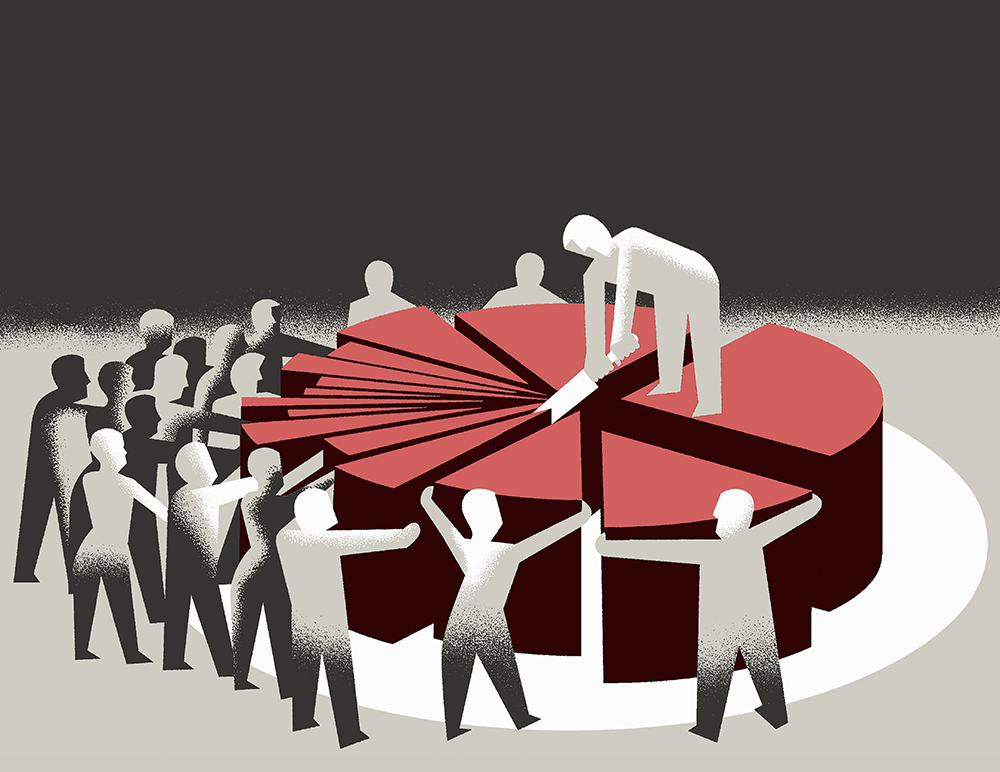
The EastEnders character Dot Cotton once observed, “You’re never more alive than when you’ve just died.” Rather profound for a soap opera, and I was thinking of that line as we celebrated the life of my old friend Lord Andrew Phillips. For years he was the “legal eagle” dispensing advice on Radio 2, where I was an editor. There’s something about a memorial service that forces you to contemplate life itself, and Andrew’s life, full of joy and purpose, was an inspiration to us all. As Dot suggested, you could certainly feel Andrew’s presence among us in the packed church in Suffolk. He had many passions: music, the law and politics, where the local was as vital for him as the international. We shared a love of nature, and it was with a child-like wonder that he once gave me a tour of his wood at the end of a deep Suffolk country lane. He told of how he’d travelled to Herefordshire in search of the Doomsday Oak, allegedly a thousand years old. Crawling around on his hands and knees trying to find the elusive acorn, suddenly an old lady appeared from a nearby cottage and offered him two that she said she’d gathered from beneath the ancient boughs. Back in Suffolk he planted them, and one came to life. It’s now a thriving sapling, bursting with life. Andrew lived 84 years but maybe that oak tree will still be standing ten centuries from now.
Despite the summer storm, we camped that night in his wood. Snug in our little tent we remembered Andrew, and how in big and small ways he made the world a better place.
The Dog Research Group
Have you noticed there are more dogs around? Apparently, since the pandemic numbers have increased considerably in the UK from around 9 million to 13 million, and I’m worried. I’ve got nothing against dogs but have had enough of irresponsible owners who don’t pick up their poo, leave waste bags hanging on hedges (what’s that about?!) and generally allow their pets to behave badly.
Recently, my daughter was savagely attacked and ended up in hospital with a nasty bite on her calf. The owner had the gall to tell her, “It’s your fault for being afraid of dogs.” Talk about victim blaming. Then, sitting in the park last week, I watched another dog run amok as a young mum having a picnic tried to protect her two terrified toddlers. “Hold on to your food, he’ll have that!” screamed the dog owner. I politely suggested that she should hold on to her dog instead, but was told, “He’s just being friendly.” I think it’s that “my-dog-can-do-no-wrong”, “you’re-just-going-to-have-to-put-up-with-it” attitude that particularly riles me.
Maybe it’s time to set up a pressure group to represent concerned people such as myself. I could call it the Dog Research Group – in much the same way right-wing groups often belie their real purpose by calling themselves the very opposite to what they are. There’s “Safe Speed”, which is actually against speed cameras, and the Conservatives’ “European Research Group” – avidly anti-EU. Or how about their “Net Zero Scrutiny Group”? Yes, you’ve guessed it, not at all keen on net zero. I asked my injured daughter if she’d join my crusade. “I agree with your sentiments, Dad, but it’s just culture wars. Shouldn’t we be fighting for things that really matter?”
[See also: Why would anyone lobby on behalf of dangerous dogs?]
That’s a bit rich
Every so often I appear as a TV panellist on a political show. I’m still learning the ropes. Recently, my opposite number made the point, as those on the right often do, that “price controls on basic foods are economically illiterate”. Afterwards I reflected on that phrase and wished I’d been quicker to counter it. Why is it that measures designed to help poor people are frequently labelled economically illiterate? Over the past 50 years the workings of the UK economy have made Britain into one of the most unequal countries in the Western world. Since 2008, whatever happens – the crash, austerity, Covid, the Ukraine war, the cost-of-living crisis – the poor get poorer and the rich richer. Now, we’re told wages must be suppressed to stop inflation. But obviously that’s never going to be called economically illiterate. So, here we go again: after workers’ wages drop by around 4 per cent in real terms year-on-year the Bank of England’s chief economist, Huw Pill, says households just need to accept they’re poorer. The reality is the poor are the victims of every economic calamity, not the cause.
Friends with benefits
In my semi-retirement I’m spending even more time with friends, and what a pleasure that is. My mother used to say there’s a Yiddish word, nachas, to describe the happiness one gets from watching our children. In much the same way, I want a word for the joy one gets from spending time with friends. Any thoughts?
[See also: The uncomfortable secret of adulthood: friendship takes work]
This article appears in the 16 Aug 2023 issue of the New Statesman, Russia’s War on the Future



